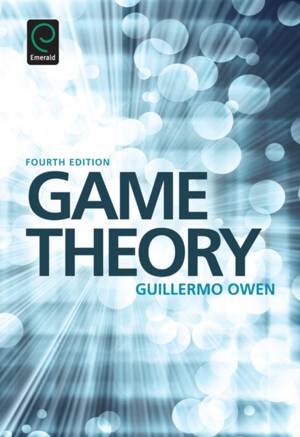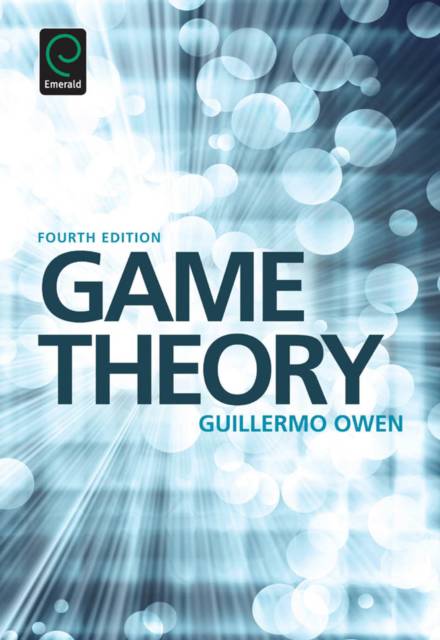
- Afhalen na 1 uur in een winkel met voorraad
- Gratis thuislevering in België vanaf € 30
- Ruim aanbod met 7 miljoen producten
- Afhalen na 1 uur in een winkel met voorraad
- Gratis thuislevering in België vanaf € 30
- Ruim aanbod met 7 miljoen producten
Zoeken
Omschrijving
Game Theory has served as a standard text for game theory courses since the publication of the First Edition in 1968. The Fourth Edition updates several recently developed subfields. It adds fresh chapters on subjects such as games with incomplete information and spatial games. Owen has expanded "Two-Person General-Sum Games" into two chapters, the second becoming "Two-Person Cooperative Games." There are new sections in the chapters "Two-Person Cooperative Games" and "Indices of Power," and there is new information throughout the book on non-cooperative games. "Game Theory" remains the only book to cover all salient aspects of this field that, having displaced Keynesian economics, is making inroads throughout the social sciences. The key features are: it explains work of 1994 Nobel Prize Winners; it provides full expansion of cooperative game theory sections; it covers games with incomplete information; it includes a spatial games section that features many illustrations; and, it includes an updated bibliography.
Specificaties
Betrokkenen
- Auteur(s):
- Uitgeverij:
Inhoud
- Aantal bladzijden:
- 500
- Taal:
- Engels
Eigenschappen
- Productcode (EAN):
- 9781781905074
- Verschijningsdatum:
- 8/08/2013
- Uitvoering:
- Hardcover
- Formaat:
- Ongenaaid / garenloos gebonden
- Afmetingen:
- 168 mm x 241 mm
- Gewicht:
- 907 g

Alleen bij Standaard Boekhandel
+ 409 punten op je klantenkaart van Standaard Boekhandel
Beoordelingen
We publiceren alleen reviews die voldoen aan de voorwaarden voor reviews. Bekijk onze voorwaarden voor reviews.







